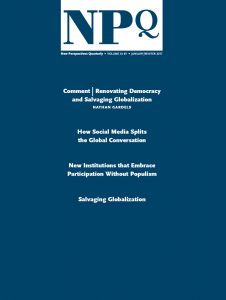Nature AND Nurture: Undermining Inequalities with Sociology and Biology
In the most recent issue of Sociology Compass, Lisa Wade contributed an article, “The New Science of Sex Difference,” about the relationship between biology and social identities and inequalities. The debate about socialization usually boils down to two seemingly opposed positions: nature versus nurture. Historically, biologists, and other fans of the life sciences, contended that natural forces in the body, like hormones, genes, and brains, determine the development of an individual. On the other hand, sociologists refute the claim that...







